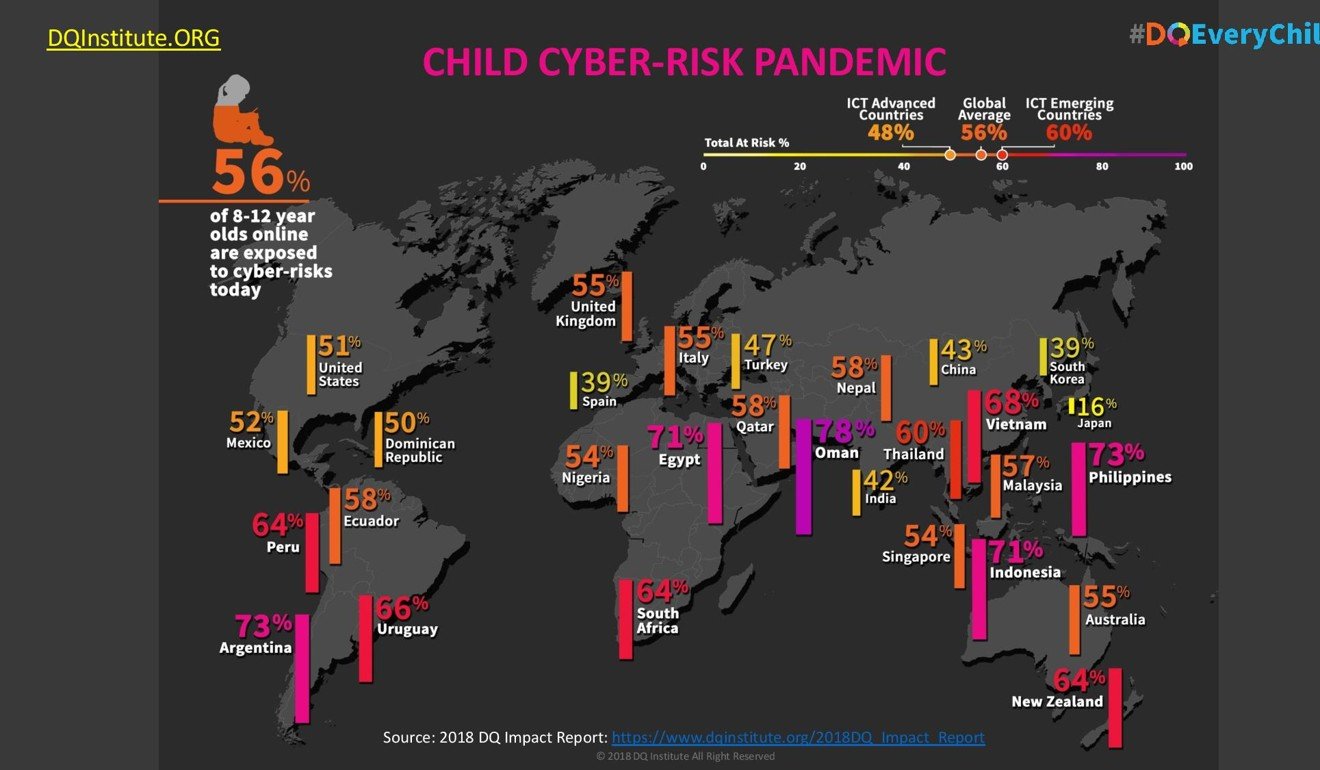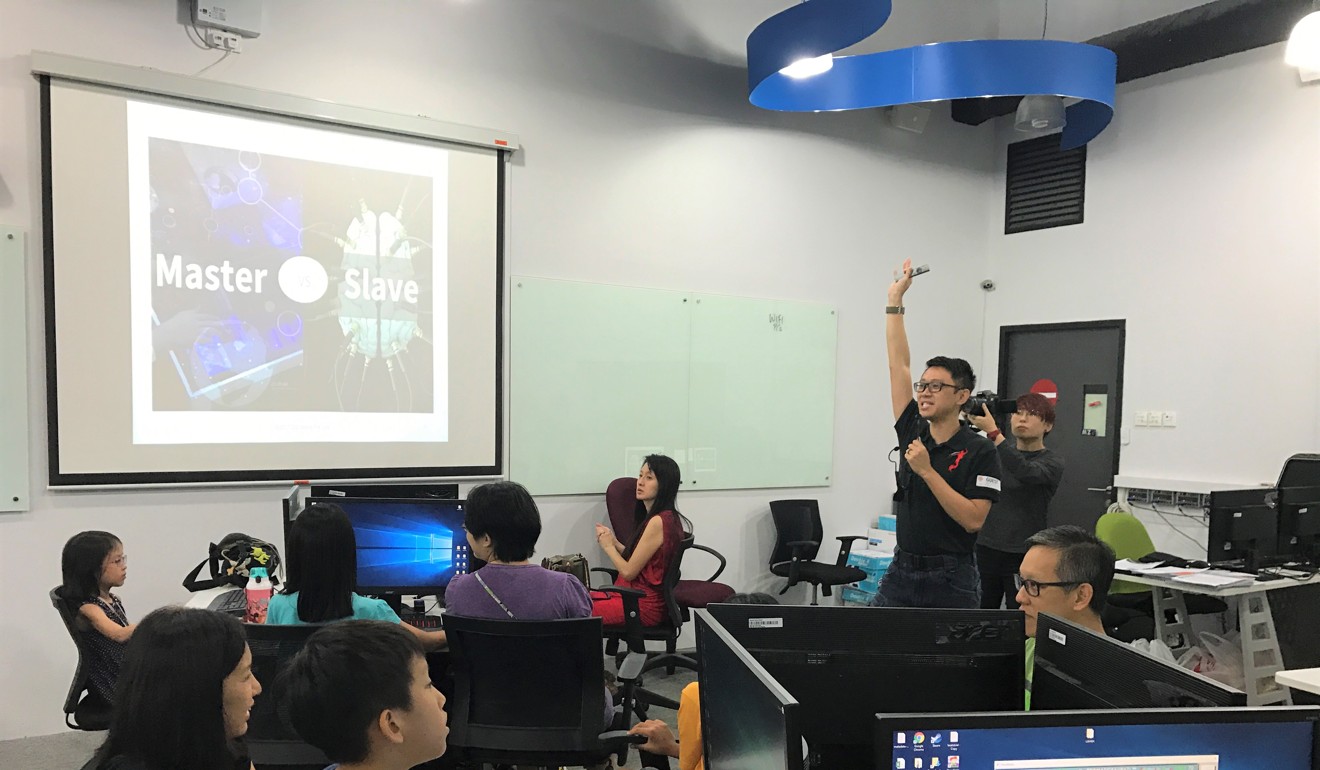
How to help children avoid cyber risks and thrive in an online world
As the number of digital risks children are exposed to continues to grow, DQ offers a way to equip kids with the skills needed to cope successfully
When I met Dr Park Yuhyun in March, at the Global Education & Skills Forum 2018 in Dubai, she was explaining to a room full of educators and journalists how a cyber-risk pandemic is gripping the world. Awareness of the digital risks children are exposed to has, indeed, grown recently.
As proof, Apple announced earlier this month that its iOS 12, out this autumn, includes a feature capable of detailing hours spent on various apps and websites – thereby allowing users to better manage their device time.
This was, says Park, founder and CEO of DQ Institute, in response to the opinion that children and iPhones make for a “toxic pair”.
Park, based in Singapore, founded the institute, a think tank aiming to advance the digital ecosystem, in 2015. She calls herself a “fervent advocate of online children protection and digital intelligence education” on her Linkedin profile.

In the 2018 DQ Impact Report, released by the DQ Institute, 56 per cent of eight to 12 year olds are exposed to cyber risks, including cyber bullying, video game addiction, online grooming and online sexual behaviour. Children at this age, according to the findings, start their activities on digital media and form habits that impact on their sense of identity, behaviour and relationships. Nearly 38,000 children within this age range across 29 countries were included in the study.
If a lack of protection persists against a backdrop of rapidly growing connectivity, it is thought that 390 million children of the same age group will be at risk – which is where DQ comes in. Just as intelligence quotient (IQ) measures a person’s reasoning and problem-solving ability, digital intelligence (DQ) the skills and knowledge needed to thrive in the online world.
On DQ Institute’s website, DQ is defined as the sum of technical, mental and social competencies essential for digital life. It encompasses skill pointers within eight areas – digital identity, digital use, digital safety, digital security, digital emotional intelligence, digital communication, digital literacy and digital rights. Some of the areas evaluated are freedom of speech, password protection and digital footprints.

The global organisation, partnering with the World Economic Forum, was a trailblazer in the #DQEveryChild movement in 2017, which brought on board 30 countries and 600,000 children.
The movement uses a free online education platform, DQ World, to calculate an individual’s DQ score, and offers materials for children to improve their digital skills. Workshops at schools can be arranged on request.
This May, Park – a Harvard doctorate graduate – rolled out her plans at schools in Hong Kong, partnering with Junior Achievement Hong Kong to distribute a localised and translated version of DQWorld.net. The non-profit youth organisation is running a pilot programme throughout the year, aiming to improve children’s digital citizenship and evaluate the impact DQ has on children.
Parents should understand their children’s psychology and [how] their habits come about – they come from us
In her blog post on the World Economic Forum, published in January 2016, Park likened a child’s balanced interaction with digital media to a nutritious diet. Tipping the balance could result in lower academic grades, depression, anxiety and even increased aggression.
Such fallout is easily traceable, according to Park. “If you bring your phone to bed, the length and quality of your sleep deteriorates. You get tired, you can’t focus, then you won’t be happy. As simple as that.”
As a mother of two – a son and daughter turning 11 and nine respectively – Park has her own advice when it comes to managing children’s device time. Her children will be allowed to own a mobile device at the age of 15; and they cannot take their laptops to their bedrooms without permission. The children have access to mobile devices, but she makes it clear they belong to her. “They told me I was the most unrealistic parent in the world,” she laughs.
It is not uncommon to see a whole family scrolling on their smart devices in silence at the dinner table, parents and children alike. Which leads to the question: are children the only ones who need to modify their habits?

“Parents should understand their children’s psychology and [how] their habits come about – they come from us,” she says, adding that it is adults who put electronic devices into their children’s hands in the first place; and it is often the adults who are constantly gazing into their smartphone screens.
DQ Institute initiated its parental campaign earlier this year and published an action guidebook for parents, listing the actions they should take if they recognise digital addiction in their child. Signs of addiction are often obvious, with telltale indications ranging from a refusal to leave the house, to skipping meals and showers – and all while the child remains glued to a screen.
Park has three tips for parents who have identified that their child is at risk, summarised as TOP:
1. “T”: Talk to your kids.
Rather than abruptly wrenching the device out of your child’s grasp – which would likely provoke a backlash – talk to her frankly about the issue. “Talk is about understanding, for both parents and children, why screen time can be harmful to one’s health and development.” Setting rules about this is just step one, according to Park. It’s very important for parents to explain and reinforce the rules with persistence.
2. “O”: Obey the rules.
“Make sure all the adults in the household speak the same language.” Kids are good at finding loopholes. For instance, they would hustle for game time from the more lenient parent, who would also be more likely to “give in” to their children’s demands. Also, “If you’re living with the grandparents, make sure they speak the same language too.”
3. “P”: Play.
Provide fun alternatives to online entertainment. “Instead of just telling your kid to do something else, parents should actively search out fun alternatives to curb their screen time,” Park suggests.

